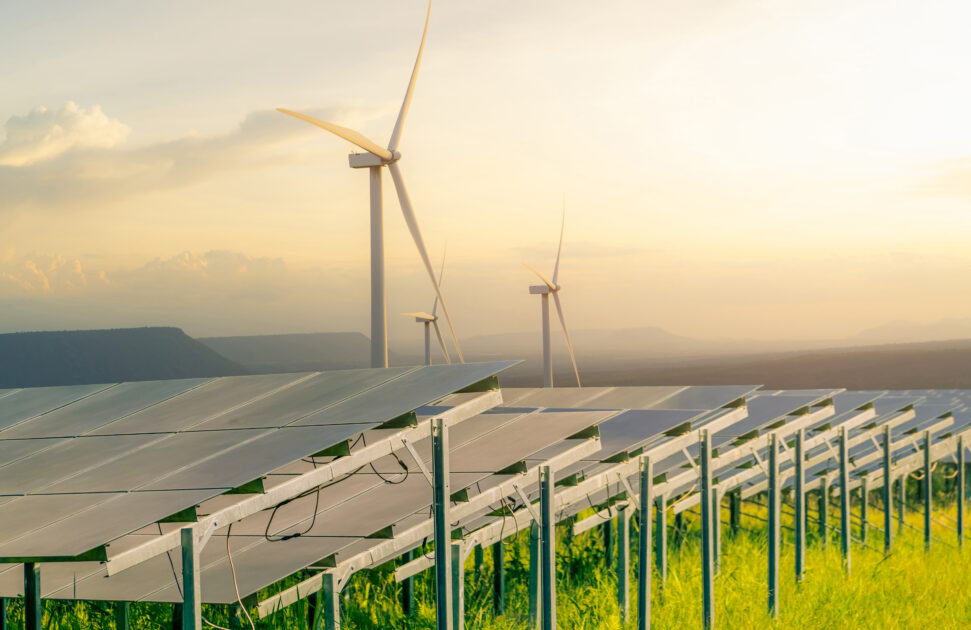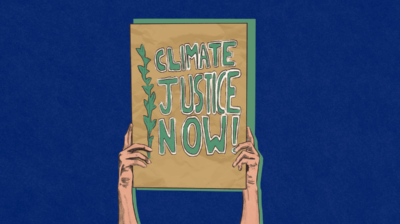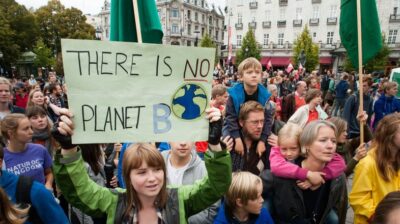What is the European Green Deal?
The European Green Deal is the European Union’s response to the climate crisis. Learn about what it means and why it’s important.

The European Green Deal is the European Union’s (EU) response to the climate crisis. The EU is an international organisation made up of 27 countries located in Europe, including Ireland. The European Green Deal, which was approved in 2020, is a plan to reach climate neutrality across Europe. Achieving climate neutrality means the amount of greenhouse gases being released into the atmosphere is balanced or exceeded by the amount of greenhouse gases being removed. We can move towards climate neutrality by transforming fossil fuel-reliant sectors such as transport, agriculture, and industry.
Learn more about the European Green Deal and how it aims to tackle the climate crisis.
In this article:
- What is a green deal?
- Why is the European Green Deal important?
- What are the goals of the European Green Deal?
- How will the European Green Deal tackle the climate crisis?
What is a green deal?
A ‘green deal’ is often used to describe a government’s plan to roll out policy to address the climate crisis. Addressing the climate crisis requires governments and powerful organisations to take significant and immediate action to reduce their planet-heating greenhouse gas emissions.
Government climate action is essential to tackling the climate crisis. However, it runs the risk of creating social disadvantage and worsening pre-existing inequalities between people and sectors of the economy. For example, closing down factories or mines that produce fossil fuels (such as coal, oil, or gas) means many workers lose their jobs. To prevent this from happening, green deal policies aim to take on the climate crisis while making sure no one is left behind.
Green deals can vary based on the priorities of the government or international organisation that creates them. They are also shaped by the specific climate-related, social or political challenges they face. The EU created the European Green Deal to support its 27 member countries in taking climate action. Another version of the Green Deal is the Green New Deal in the United States. This aims to tackle the climate crisis while also achieving other social goals like job creation and equality.
Why is the European Green Deal important?
The European Green Deal was introduced by the European Commission. This is the section of the EU that creates new rules and laws. Its aim is to address climate and environment-related challenges across the continent. This is globally significant because Europe as a whole is one of the regions most responsible for global greenhouse gas emissions. Additionally, the state of nature in the EU is in decline with 80% of habitats – such as wetlands, rivers and forests – in poor condition.
What are the goals of the European Green Deal?
The goals of the European Green Deal are based on the 2015 Paris Agreement. The Paris Agreement is an international climate treaty. It aims to keep global warming well below 2 degrees Celsius and as close as possible to 1.5 degrees Celsius above pre-industrial levels. This means before the Industrial Revolution when we started burning fossil fuels in factories. Under the agreement, the EU has committed to taking strong climate action to significantly reduce greenhouse gas emissions. The Green Deal sets out a plan of action in line with this commitment.
This kind of climate action will bring about huge changes for communities, regions and industries across the EU. The Green Deal aims to make sure this transition is fair and inclusive of everyone. Learn more about a just transition.
How will the European Green Deal tackle the climate crisis?
In response to the rise in global temperatures and the accelerating climate crisis, the European Green Deal aims to:
- Reduce greenhouse gas emissions by 55% by 2030
- Make Europe the first climate-neutral continent in the world by 2050 at the latest
The 2021 European Climate Law includes these goals. The EU as a whole is legally bound to take the necessary steps towards achieving them. Climate neutrality will bring many benefits for people and nature across Europe. This will include food security, improved physical and mental health, less environmental degradation and the protection of nature.
The Green Deal plans to achieve these goals by rolling out policies that will reshape many industries across the EU such as agriculture, transport and energy. It will begin the transition towards a sustainable future, free of fossil fuels.
European Green Deal solutions for tackling the climate crisis
- Sustainable transport: Making public transport cleaner, accessible and more affordable, and passing a law that requires all new cars and vans to be zero-emissions by 2035
- Clean energy: Investing in renewable energy (such as wind and solar power) and providing grants to upgrade the energy efficiency of homes and businesses. Improved energy efficiency reduces greenhouse gas emissions, cuts energy bills and prevents energy poverty
- Nature-based solutions: Protecting and restoring natural habitats for biodiversity to thrive. Nature restoration plays an important role in tackling climate change as healthy ecosystems and biodiversity can reduce greenhouse gas emissions and protect vulnerable communities from the effects of climate change. Learn more about nature-based solutions
- Supporting communities and businesses impacted by the transition away from fossil fuel production, such as the Midlands region in Ireland, where many communities and workers were dependent on peat
- Sustainable food systems: Redesigning the way we produce, distribute and consume food, to reduce environmental impacts, cut greenhouse gas emissions and ensure food security
Learn more about the European Green Deal on the European Commission website.
Feeling overwhelmed and want to talk to someone?
- Get anonymous support 24/7 with our text message support service
- Connect with a trained volunteer who will listen to you, and help you to move forward feeling better
- Whatsapp us now or free-text SPUNOUT to 50808 to begin.
- Find out more about our text message support service
If you are a customer of the 48 or An Post network or cannot get through using the ‘50808’ short code please text HELLO to 086 1800 280 (standard message rates may apply). Some smaller networks do not support short codes like ‘50808’.






